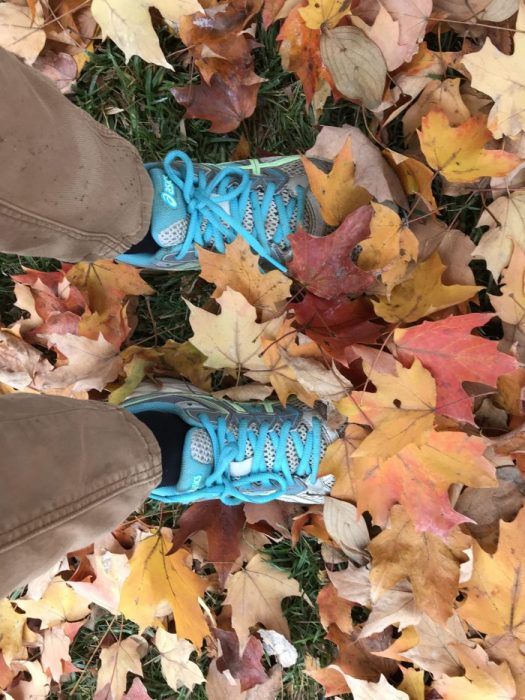“Should I leave the leaves? ” is a question I am getting more and more frequently. With all the recent information flowing out about “re-wilding” and keeping things “natural”, I wanted to address the dilemma of raking or not raking your leaves. You certainly don’t want to bag them up and add to a landfill! And of course, we have received the message of keeping up seed heads for the birds.


Many of us are dealing with falling leaves and want to use the best possible method for disposing or dealing with the annual leaf drop, but also keeping the best possible habitat for wildlife.
On Facebook, I see many posters and memes on “Leave Leaves Alone”.

But as anyone knows, if you live on a property with large trees, dealing with leaves is a necessity. The solution is more nuanced than just letting the leaves pile up. You can’t leave a thick leafy cover on all your grass and planting beds, and think that turf and all your perennials will push through that soggy layer in the spring. So what can you do to change your yard habits, but also support the local ecosystem?

Why the Shift to Leaving Leaves?
Small critters ranging from songbirds, turtles, and toads, mammals, insects, and other invertebrates rely on the leaf litter or “duff” of undisturbed forest floor to survive and shelter them from the elements.

Leaves insulate root systems, retain moisture, and deter weeds so why not keep them in place? Slowly breaking down they release essential nutrients to plants so nothing is wasted.
Leaving the leaves doesn’t mean to ignore all the leaves that fall and remain on the ground. Here are some tips on keeping the leaves, but making them useful and creating habitat as well.

Tips to Manage Leaves to Have a Healthy Yard
- Large Piles– Rake your leaves into a large pile in an out-of-the way place on your property and leave them alone. In several years, they will decompose and you can dig out the lower layer to add nutrients to your planting beds. Of course, you need the extra room for the pile to remain undisturbed.
- Mow Mulch-Use a mulching mower to shred the leaves on your lawn and they will decompose gradually and feed the underlying grass. Mulching your leaves improves the soil structure. There is no need to buy expensive fertilizers for your lawn!
- Woods-If you have nearby woods or a wood line, rake them into the woods and forget about them.
- Advertise-Frequently on Facebook in the fall, I see people advertise that they have bagged leaves ready for pick up for others to use as mulch.
- Leave Them Alone-If you are fortunate in having leaves that are small and light, like Larch, Dawn Redwood, or Locust, leave them alone and they will disperse naturally. I have large leathery Sycamore leaves which need to be moved.
- Shred– I have a shredder that I put in leaves and small twigs that makes a great flower bed mulch. This is a thrifty way to save money on mulching in the spring and add nutrients.
- Compost-Throw them into a compost pile and in a season the leaves will break down to use as compost which are like vitamins to the soil.
I use a combination of methods. I mow-mulch all my sycamore leaves on the lawn to decompose into the turf. Removing leaves from my flower beds to a compost pile, gives me an endless supply of rich compost to spread around every season, and I shred some to use as mulch. I even have some dead wood piles that I leave for microorganisms to take care of and they will become a nursery for many insects and invertebrates.




Who knew leaves would be as hot a topic as politics, religion or Covid vaccines. 🙂 You include some great points, but I would also add that it is different for those dealing with feet of snow on the ground for several months or those across the country dealing with invasive jumping worms. I think each person has to evaluate their property, gardens and local conditions. I remove the large ones off my lawn before the snow falls and leave the ones that fall in the beds until spring clean up. Happy fall and I hope your mulching goes well.
All excellent points! Thanks